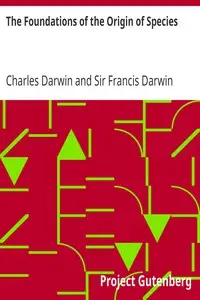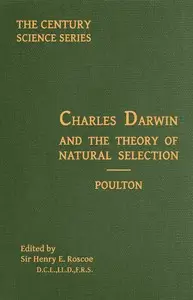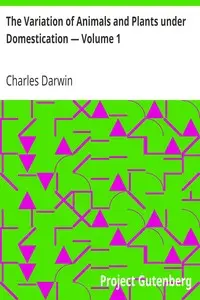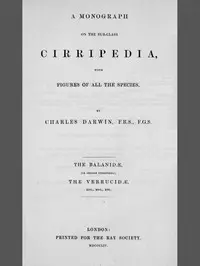"On the Origin of Species By Means of Natural Selection" by Charles Darwin is a groundbreaking scientific work that explores the revolutionary concept of evolution through natural selection. Inspired by observations made during his voyage on the H.M.S. Beagle, Darwin introduces the theory of how species adapt and change over vast periods through mechanisms like variation, inheritance, and the struggle for survival. The book begins by examining how humans have selectively bred plants and animals, noting the significant modifications achieved through this artificial selection, and uses examples like domestic pigeons to illustrate the power of selective breeding. He then connects these domesticated variations to his revolutionary ideas about the evolution of wild species, setting the stage for his argument that natural selection is the primary force driving these biological transformations and fundamentally shaping the living world.

On the Origin of Species By Means of Natural Selection Or, the Preservation of Favoured Races in the Struggle for Life
By Charles Darwin
Witness a groundbreaking exploration of how life adapts and transforms through a constant battle for survival, forever changing our understanding of the natural world.
Summary
About the AuthorCharles Robert Darwin was an English naturalist, geologist, and biologist, widely known for his contributions to evolutionary biology. His proposition that all species of life have descended from a common ancestor is now generally accepted and considered a fundamental scientific concept. In a joint publication with Alfred Russel Wallace, he introduced his scientific theory that this branching pattern of evolution resulted from a process he called natural selection, in which the struggle for existence has a similar effect to the artificial selection involved in selective breeding. Darwin has been described as one of the most influential figures in human history and was honoured by burial in Westminster Abbey.
Charles Robert Darwin was an English naturalist, geologist, and biologist, widely known for his contributions to evolutionary biology. His proposition that all species of life have descended from a common ancestor is now generally accepted and considered a fundamental scientific concept. In a joint publication with Alfred Russel Wallace, he introduced his scientific theory that this branching pattern of evolution resulted from a process he called natural selection, in which the struggle for existence has a similar effect to the artificial selection involved in selective breeding. Darwin has been described as one of the most influential figures in human history and was honoured by burial in Westminster Abbey.















![Faust [part 1]. Translated Into English in the Original Metres by Johann Wolfgang von Goethe](https://cdn.a2-host.cloud/y-MkV3aFt2tKEbdp7VCDtzUhX9qKc82D4dZAE78xr7U/rs:fill:215:325:0/g:ce/aHR0cHM6Ly9zcC1hc3NldHMuczMudXMtd2VzdC0wMDQuYmFja2JsYXplYjIuY29tL2Jvb2svMTQ1OTEvRmF1c3RfcGFydF8xX1RyYW5zbGF0ZWRfSW50b19FbmdsaXNoX2luX3RoZV9PcmlnaW5hbF9NZXRyZXNfY292ZXIuanBn.webp)



